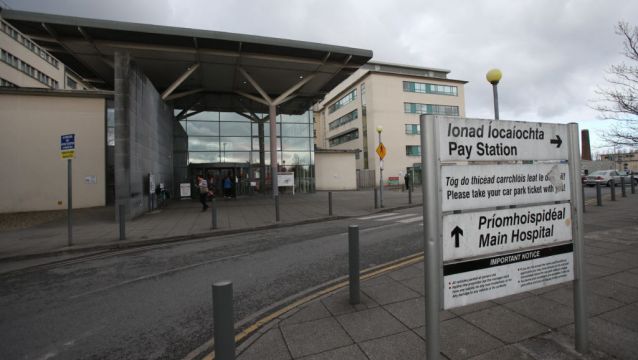University Hospital Galway (UHG) has said it has fully implemented a series of recommendations after concerns were raised about an increase in babies being born with head injuries.
It comes after nine babies at the hospital were identified as suffering subgaleal haemorrhages in 2022.
Subgaleal haemorrhage (SGH) is a form of bleeding under the scalp which can lead to severe complications and death of newborns.
It can be classified as mild, moderate and severe and is almost exclusively associated with vacuum-assisted delivery (VAD), also called ventouse delivery.
At UHG, skull fractures were detected in some cases, while two babies were given treatment for neonatal jaundice.
Management at the HSE’s Saolta hospital group decided to audit the case files of the cluster of babies for insights into the increased occurrence of the injuries.
It found that there were no other apparent causative factors other than the assistive births.
Saolta defended the rate of neonatal SGH at the hospital of 2.6% for ventouse deliveries, saying it was below international rates.
It cited a rate of 4.4% found in a study of almost 8,000 babies born with VAD at an Israeli hospital between 2009 and 2018.
Saolta said: “Different senior obstetricians were present at all deliveries, including members of the consultant staff."
It said the hospital "had a clinical guideline in place since November 2020 to provide advice to staff regarding the detection and management of potential subgaleal haemorrhage in the newborn.”
The nine infants were admitted to a neonatal unit for observation.
Two of the infants experienced skull fractures.
Two infants required a short course of phototherapy for neonatal jaundice.
None of the infants had hypovolaemia, tachycardia, hypotension or a requirement for blood transfusion.
No infant had a seizure, abnormal movements nor an abnormal suck or gag reflex.
Saolta said all of the infants were well on discharge and that all of the cases were considered mild.
It added: “It is also acknowledged that the prevalence of this condition may vary with how closely it is examined for.”
Following a review, a local management team made eight recommendations to senior management.
These included clarifications on the role of the consultant on-call’s care for women in labour, formal structures and plans around handover care and labour ward management, accurate initial head circumference readings, the use of ultrasound in cases where imaging was considered necessary, and further review.
It also recommended that the department should develop a formal guideline of the management of neonatal SGH.
Saolta said there had not been a cluster of cases of neonatal SGH in the period since these recommendations had been fully implemented.
The Department of Health said all parents involved had direct engagement and each of the families had been provided with an opportunity to meet with the clinical team to go over their individual report.
In August, Minister for Health Stephen Donnelly said his “hope” and “default position” was that the full report should be made public.
But the department said this week that it had been advised by Saolta that the full report on these cases would not be published due to concerns in relation to protecting the privacy of the families involved and their entitlement to confidentiality in respect of their health information.







